Between 1970 and 1973 Mick “Woody” Woodmansey played drums on four successive David Bowie albums, which saw the Starman skyrocket from relative unknown to international superstar.
Now the Yorkshireman is hooking up once again with longtime Bowie producer Tony Visconti and Heaven 17 frontman Glenn Gregory to bring the best of that music to live audiences once more.
The last surviving member of The Spiders From Mars, Woodmansey got involved with the supergroup Holy Holy – named after an early Bowie song – quite by accident.
Invited to do a live interview as part of the ICA‘s Bowie exhibition in 2014, he met up with an embryonic version of Holy Holy, then comprising members of Spandau Ballet, The Alarm and Bob Geldof‘s backing band, with Blondie‘s Clem Burke on drums.
They got on so well that Woodmansey guested on a couple of tracks with the band at the Latitude festival later that year and when Burke was recalled to touring duties he became a full member and co-leader.
Woodmansey got Visconti, who played bass on The Man Who Sold The World, on board and he suggested Gregory – an admirer and friend of Bowie’s – and the spine of the band was in place.
Successful tours of the UK, Japan and North America followed and, with the band preparing for more British shows in February, Woodmansey tells Matt Catchpole about the man behind Ziggy Stardust and why he never tires of playing those songs.
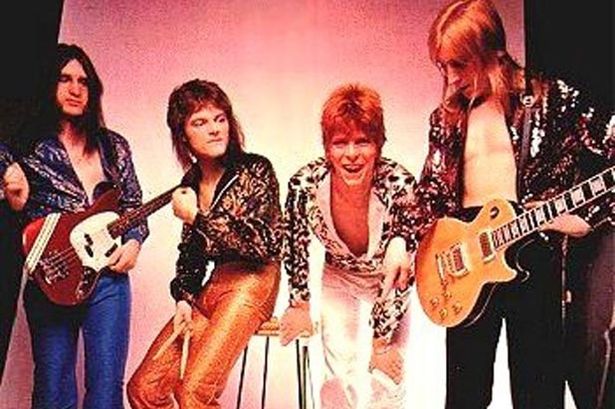
Born in Driffield, East Yorkshire, Woodmansey first met Bowie when he was invited to replace John Cambridge as drummer in The Hype – the band that would soon transform into The Spiders From Mars.
Curious, but yet to be convinced that this was the project for him, Woodmansey called at the London flat, which would later become home to the entire band.
“For me, it was a matter of does he look good? can he sing? can he write? is he intelligent?” Woodmansey remembers.
“I was wearing denims and a tie dye T-shirt and hair down my back. He opened the door and he had red corduroy trousers on and blue shoes with red stars on them he’d obviously painted on himself, a rainbow T-shirt, bangles and long hair. I thought well… it’s a bit of a culture shock, but he looks good.”
The pair spent a few hours discussing music and Woodmansey was impressed with Bowie’s knowledge, but when the singer began playing some of his back catalogue things took a downward turn.
“It wasn’t my cup of tea. It was more folky and there were no loud drums on it, so I wasn’t that interested (laughs). I thought oh, maybe I’ve made a mistake here.”
What turned it around was Bowie picking up his 12-string acoustic to play a more recent composition.
“He played me a track called Wild Eyed Boy From Free Cloud and by the end of that I was like: ‘Ok, I can tick all the boxes. He can sing’.
“He was one of the first people I’d met who was really determined that he was going to make it. But he hadn’t yet really figured out how he was going to do it.”
With guitarist/arranger Mick Ronson already on board and Trevor Bolder taking over from Visconti on bass, Bowie now had three no nonsense Yorkshiremen in the band – something he was quick to embrace.
“Luckily he was able to understand the Yorkshire viewpoint, the Yorkshire humour – his father was born in Doncaster, I think, so it obviously came through the genes somehow. And he would talk to us in a Yorkshire accent sometimes,” Woodmansey recalls with a smile.
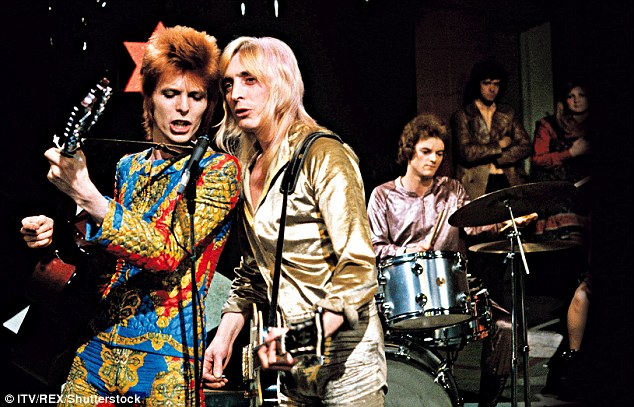
Bowie’s confidence and talent were evident from early on, but by degrees Woodmansey began to realise that the man he sat behind on stage might just be a genius.
“It was in gradual steps,” Woodmansey says. “The first album – The Man Who Sold The World – it was like, he can write and it was a fantastic album to record. Then after he’d been to America, he came back and he had a piano in the bedroom, his acoustic guitar in the lounge and he’d be in one of those places writing. We’d be making toast in the kitchen in between and he’d just shout: ‘’ere I’ve finished one!’. And that was the start of Hunky Dory.
“The songs were so good and they were complete. When he did The Man Who Sold The World we didn’t get completed songs, but Hunky Dory, they were all finished – all the lyrics, melodies and everything. They seemed all very different, but they were all good. I think he was really trying to say ‘I’m a songwriter’ with that album. When it got to Ziggy it kind of kicked into the rock ‘n’ roll thing a lot more.”
By the time it came to recording Life On Mars it was clear that Bowie and the band were heading for the stratosphere.
“Finishing Life On Mars was one of the high points. David gave it to [engineer] Ken Scott to mix, then Ken called us in to hear it. The four of us just sat and listened and it was so different and so good that you almost forgot you’d played on it. I remember saying “Is that really us?’. That song particularly made us think he’s got even more to come than what he’s done already.”
Besides his songwriting talent, Bowie’s attention to detail and acute visual sense set the Spiders apart from the competition and he expected his bandmates to fully engage with his ideas.
“Luckily he didn’t try to do it all on one weekend, otherwise we might have been on the next train home,” Woodmansey laughs. “But you’d finish a rehearsal and he’d say: ‘We’re gonna see a play tonight.’ I’d say: ‘What’s it called?’ and he’d say: ‘I’ve no idea, but the lighting director is the best in London at the moment. Go and watch it, study it, ‘cos when we put a show together I’m gonna be asking you which lighting we should use’.”
Along with then wife Angie, Bowie took an active role in creating the band’s image.
“He would pass you a pencil drawing while you were watching a movie and he’d say: ‘What do you think? It would be like a Beatles costume crossed with Star Trek, or something. I’d say: ‘Yeah looks a bit Beatley, but futuristic,’ but I hadn’t yet joined all the dots.
“A couple of days later we’d be in Liberty’s material department, him and Angie passing down rolls of fabric. I’d be thinking: ‘Oh we must be getting new furnishings for the house’, but they were wanting to make new outfits out of them!”
Though the band were generally accepting, occasionally the outfits were so outlandish they felt they had to put their foot down.
“We had a clothes designer, who even when we were on tour in America, would make stuff and send it across, so it would arrive at the hotel. He made me an outfit and I tried it on and I looked like Lurch from the Addams Family crossed with a deckchair. I just went: ‘No way am I wearing this at the gig tonight!’.”
Bowie found out and was not best pleased.
“David asked if I got the clothes and if I was wearing them. I said: ‘No’. He said: ‘You have to, Freddie [Buretti] sat up all night and his fingers were bleeding!’ and I said: ‘Well I don’t care if his legs fell off, I am not wearing that!’ Right up to gig we were still arguing about it, even as we walked on stage and then he just turned round to face the drums and hurled abuse at me and we both burst out laughing.”
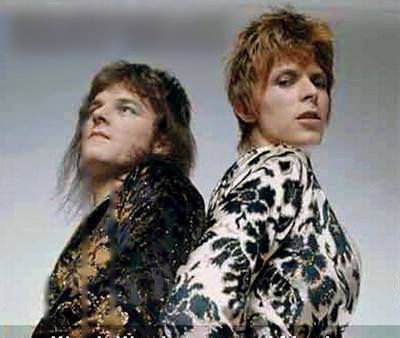
The idea of wearing make-up, pretty much a prerequisite during the glam era, was also initially anathema to three gruff Yorkshireman, but Bowie soon brought them round.
“On our first TV show we’re all brushing our hair to look as cool as we can before we go on. And he pulls out this bag of make-up and starts putting it on his face. We stopped brushing our hair and watched him, mouths open.
“He said really coolly: ‘You boys not wearing make-up then?’ He got three answers that he didn’t expect and he said: ‘Oh that’s a shame.’ I said: ‘What do you mean?’ He said: ‘You haven’t played under the lights in these studios before, it has a tendency to pull all the colour out of your face and you’ll look quite ill and green. It’s a shame because you’ve probably got a lot of friends watching you.’ He didn’t have to say anything else. After that it was like: ‘What do you do with this?’ He was very talented at getting his own way without being forceful.”
Bowie took a similar approach when it came to the music.
Far from dictating how he wanted songs to be played, Bowie gave his musicians free rein, but their playing needed to be right on the money.
“He never ever told any of us what to play. He trusted that you were gonna do your job really,” Woodmansey says.
“He’d play a new song to us maybe twice and then, bang! you were in record. You had to be really on the ball. Starman was a first take, Genie was one take – the first time we’d played it – he never went past three. You’d just had to work out for yourself what the track meant. You had to get there on your own.”
As the band toured The Rise And Fall Of Ziggy Stardust And The Spiders From Mars it became clear that something very strange and special was happening.
Looking out into the crowd the band began to see audiences becoming increasingly populated with Martians.
“We definitely seemed to pull all the freaks in all the cities we played, they all arrived,” Woodmansey recalls.
Even when the tour bus pulled in at truck stops, Ziggy’s influence became apparent.
“You’d see these great big American lorries and then the guys would get out in full make-up, along with all their trucking gear. We were like: ‘Are we responsible for this?'”
The band noticed that the Ziggy persona was taking an increasing hold on their frontman.
“When we first started touring, it [becoming Ziggy] was just when he was getting ready for a performance and when he got off stage, we were a bunch of mates and we’d go out clubbing and have a good laugh. But then later on, Ziggy would get in the limousine with you and that got a bit strange.
“You couldn’t say: ‘I wonder if Leeds won the F.A. Cup?’ Ziggy would not answer that, so you were a bit pushed as to what to talk to him about. It was a very powerful thing that he had created. It was alien.”
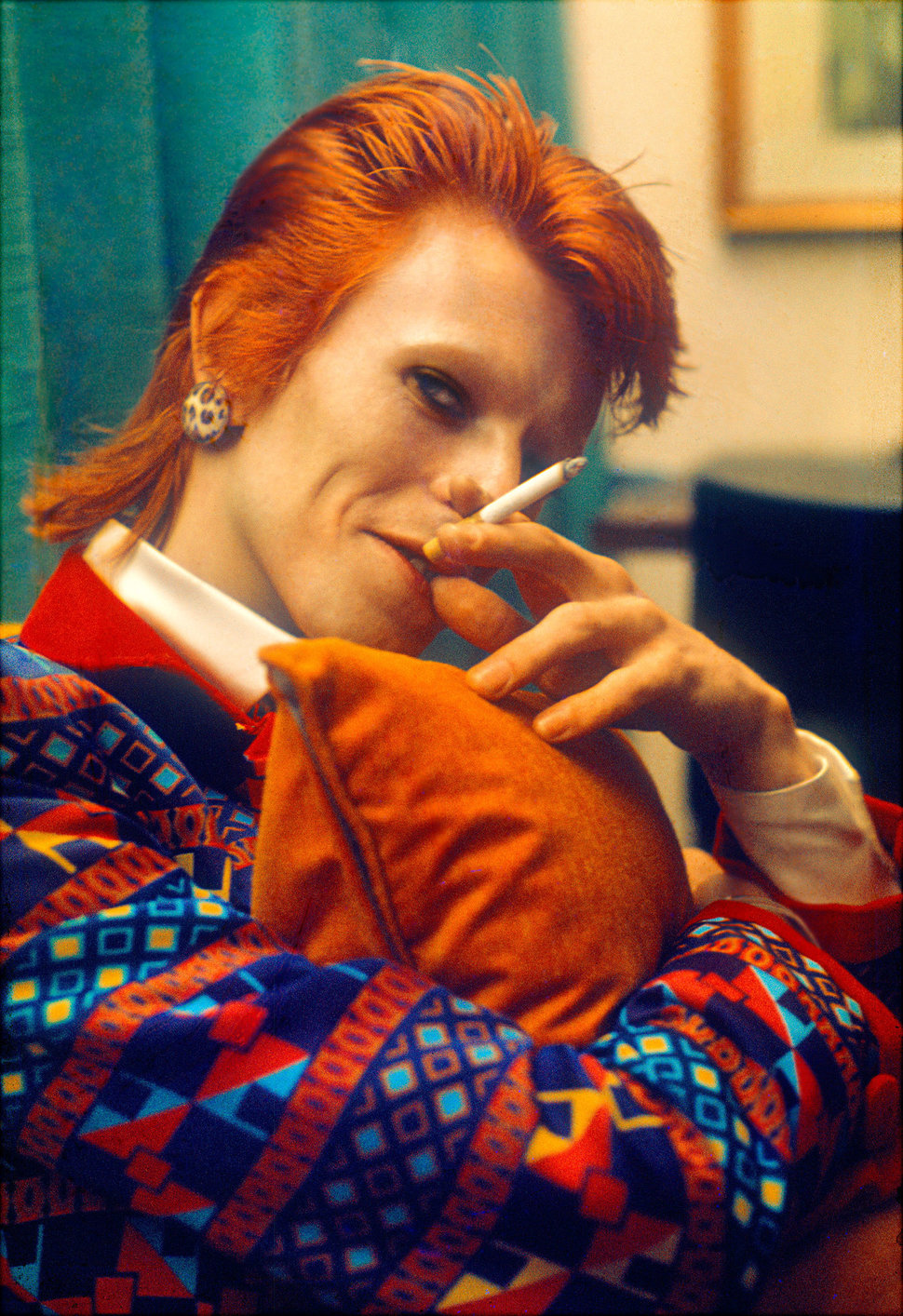
With hindsight, Woodmansey feels the weight of carrying Ziggy on his shoulders became too much for Bowie to bear.
However, he was as stunned as the rest of the band when Bowie announced that the July 3, 1973 Hammersmith Odeon show would be their last.
“It was a complete shock. We felt it was just a publicity stunt – ‘he just wants to withdraw from the public for a while’. We had, I think, a European tour all set up to do.”
But Bowie meant what he said and the Spiders would not play live with Bowie again.
After 1973’s Aladdin Sane, Woodmansey was replaced on the drum stool by Aynsley Dunbar for the covers album Pin Ups.
The break-up was not without acrimony, but Woodmansey was able to repair his friendship with Bowie after meeting up with him during the making of the Low album.
“At the end of the Spiders we’d probably said a few things to each other that we shouldn’t and he said: ‘Look, I’ve come to realise the time with the Spiders that was my rocket ride from relative obscurity to the top and I’m never gonna get that again and I couldn’t have done it without the Spiders.’ We hung out and had a meal together and It was good, we kind’ve got closure as people and musicians.”
Woodmansey would go on to make an album without Bowie in a line-up of the Spiders which included Bolder and frequent Bowie keyboard player Mike Garson.
Tantalisingly, he also reveals in his 2016 autobiography Spider From Mars: My Life With David Bowie that the singer made one abortive attempt to reform the group.
“It didn’t work because Mick was into doing something else at the time. I think he probably tried to do something similar [to the Spiders] with Tin Machine, but that was never going to work, it was just not the same thing,” Woodmansey explains.
Bowie’s death aged 69 in January 2016 left Woodmansey as the last Spider standing, Ronson having succumbed to cancer aged 46 in 1993 and Bolder of the same disease in 2013, aged 62.
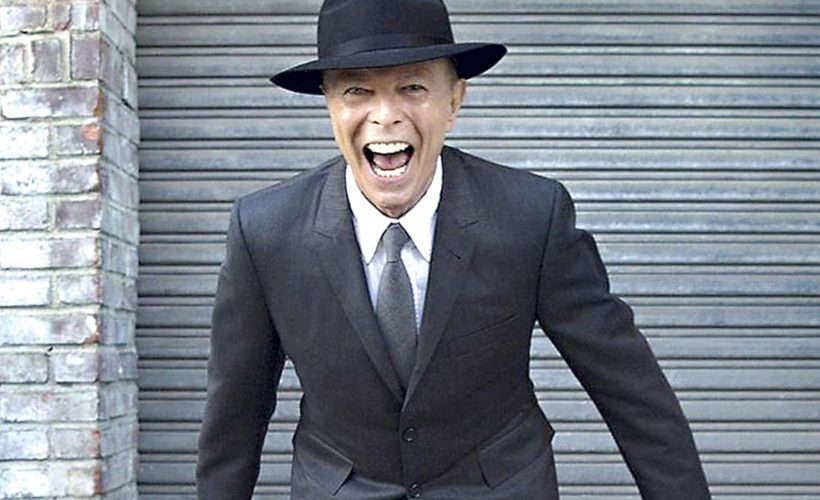
Woodmansey was touring with Holy Holy when he last spoke to Bowie. He was aware of Bowie’s illness, but thought he was on the mend.
“I spoke to him about a day and a half before he passed away. Tony [Visconti] had said that he wasn’t well, but that he’d got through it and we actually phoned him up during a concert – we were actually playing at the Highline in New York on his birthday, which we hadn’t planned. We played Happy Birthday to him.
“He said: “Oh thanks, tell the audience thank you and ask them what they thought of Blackstar’ and they all went mental and he said: “Good luck with the tour and catch you later.’ We were in Toronto when I got the news he’d passed away. It was surreal, we were still a foot off the ground from having just talked to him.”
It’s a desire to recreate the best moments of his four albums with Bowie that drives Woodmansey’s work with Holy Holy.
The band play an exhausting two hour, 10-minute set covering two albums in full, plus a few personal favourites.
“We’ll be playing The Rise and Fall.. and The Man who Sold the World in their entirety plus a few other tracks we like to play as well. It’s a fantastic band, we concentrate on getting the spirit and the message and the atmosphere of each song – that’s the important thing,” says Woodmansey.
“Fans are not stupid, you know, they know when you mean it, and it works! They are just fantastic songs to play, you never really get bored with them.”
Gregory, Woodmansey says, has been a revelation, taking Bowie’s songs and making them his own.
“He was Tony Visconti’s suggestion. He said: ‘Get Glenn Gregory – he’ll kill it!’ and so I did. And I just don’t know how he does it, he manages to put the song across without being David Bowie. He does it his way and it works! Nobody ever says anything negative about it. It’s always a fantastic night.”
- The Holy Holy UK tour kicks off at The Barbican in York on 5 February 2019, finishing at Cambridge Corn Exchange on 24 February. Tickets on sale here.
- For more about Holy Holy visit the band’s website on this link.
One thought on “STARDUST MEMORIES – Last Spider Standing Woody Woodmansey On David Bowie And Keeping The Starman’s Music Live With Supergroup Holy Holy”